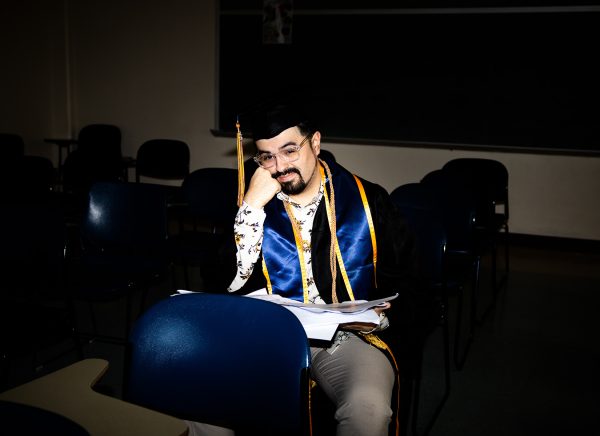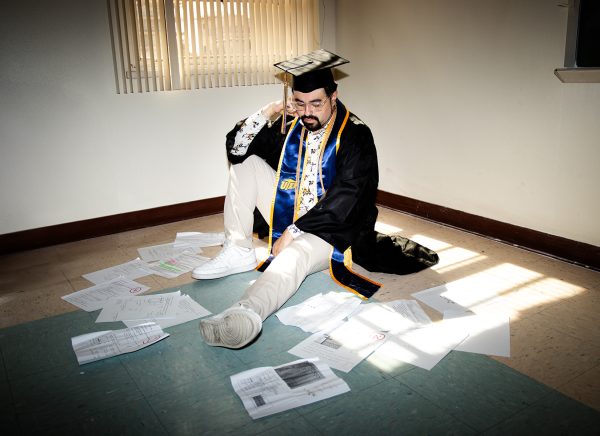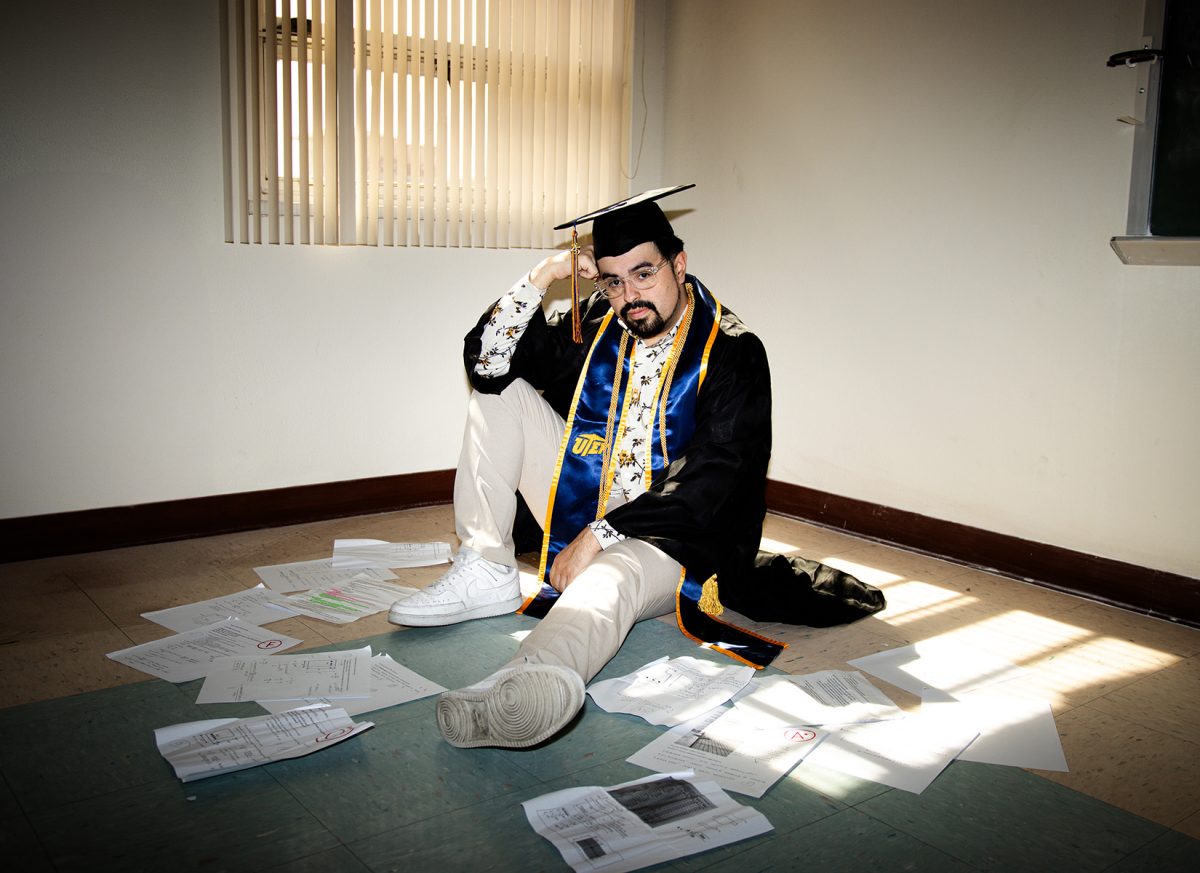For newcomers, the college experience can be an intimidating endeavor – filled with nerves, excitement and curiosity as to what this newfound chapter awaits.
Pursuing higher education can be overwhelming. Many students feel pressure to fit in, adopt an academic identity and perform at a high level to avoid being seen as inadequate.
The pressures of conforming to the expectation of sounding “academically smart” is understandable, higher academia has prioritized and perpetuated the need for complexity over clarity. Students then feel the need to include more complex words in their work.
Junior Reyna Ugalde, a student at the University of Texas at El Paso (UTEP), majoring in English and American literature, attributes the reluctance to participate to the pressure of adhering to the reputation that precedes higher academia as a place of constant academic success.
“I have a lot of classmates that sound like a computer when they speak; they always sound eloquent, and when I participate, I feel like I’m going to sound dumb compared to them, and when I’m talking to professors, I feel like I have to use a different kind of wording,” Ugalde said.
For many students, the desire to fit in and be perceived as capable in an academic setting creates a constant internal struggle. A common denominator for students is the self-imposed pressures of performing with or against their peers, where the fear of not measuring up can shape how they express themselves.

“There is more peer pressure from all your classmates. They use words you’ve never heard before or don’t know how to use in a sentence regularly,” Ugalde said. “When you participate, you feel like you have to use the same kind of vocabulary.”
Undergraduate studies, as a foundational stage in every student’s academic journey, often fosters a recurring sense of dislocation and encourages a habit of comparison.
Roberto Delgadillo is a student in his final year in the Master of Arts in Teaching English program and a high school teacher at Pebble Hills High School. He reflects on his academic journey and notes the stark contrast between undergrad and graduate.
“When I entered the program, I didn’t come with a cohort, so I entered the program on my own and experienced imposter syndrome because people were older and more experienced than me,” Delgadillo said.
Delgadillo recalled an instance where he felt inclined to introduce himself to a class as someone he hopes is “capable of saying something smart” throughout the semester.
“I had to naturally see [undergrad] at first because now [in the graduate program] there’s a huge gap of knowledge to pull from when you’re reading so much each week that you just absorb so much of it passively. One day, you wake up and are using this kind of terminology,” Delgadillo said.
Participating can be intimidating, as the pressure to sound eloquent often outweighs authentic expression. This is due to academia’s long-standing association with producing knowledge and scholarly work, where communication —whether written or spoken has faced increasing criticism over the past 50 years for its tendency to complicate information.

Both students shared that, despite the prevailing stigma, the focus should shift away from constantly presenting oneself as an academic authority. Instead, they argue for prioritizing clarity and a deeper understanding of complex subjects.
“You can use a big word here and there, but overall, you need to make sure that your classmates and your professors understand what you’re trying to say. If not, then what’s the point of using all these big words if no one understands what you’re saying,” Ugalde said.
Similarly, there is a consensus that as a student, one’s responsibility is to make their knowledge accessible and known to the public, thereby legitimizing their presence in all academia levels.
“As an educated brown person having this role in the community and being able to reach even family members right who don’t have that vocabulary, there’s some kind of responsibility that once we have the words, if you’re knowledgeable in a thing, you have authority to speak on it,” Delgadillo said.
As each semester brings in a new wave of students, the pressure to sound smart can be eased by recognizing that perspective is a valuable aspect of the classroom.
Incoming students can rest assured that while the pressure to conform by sounding “smart” prevails, sharing knowledge should be prioritized instead.
Jazmine Gracia is a writing contributor for The Prospector and can be reached [email protected].









